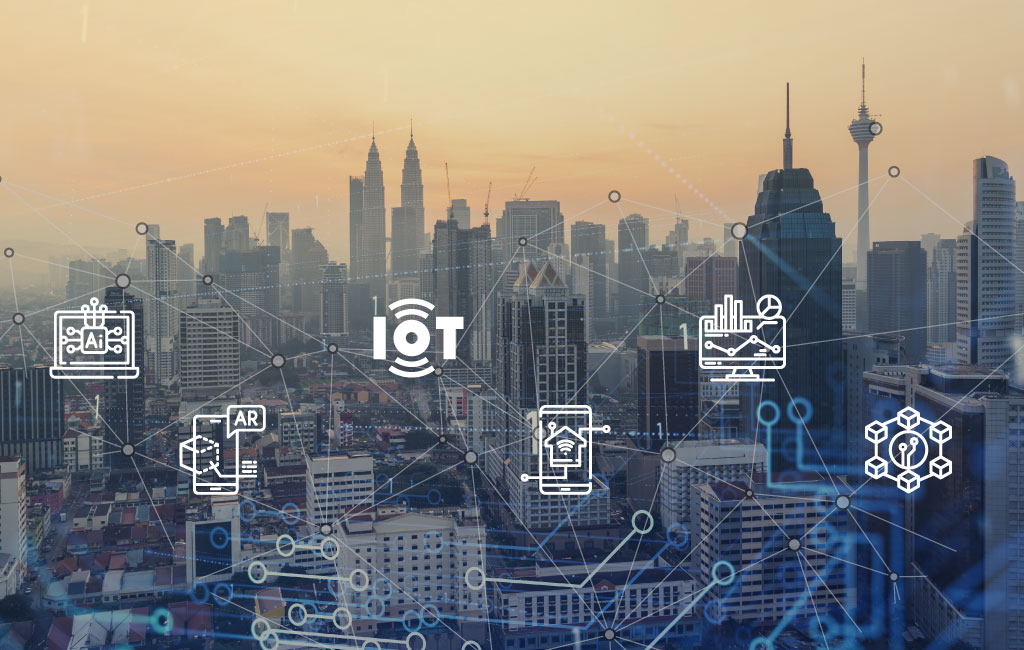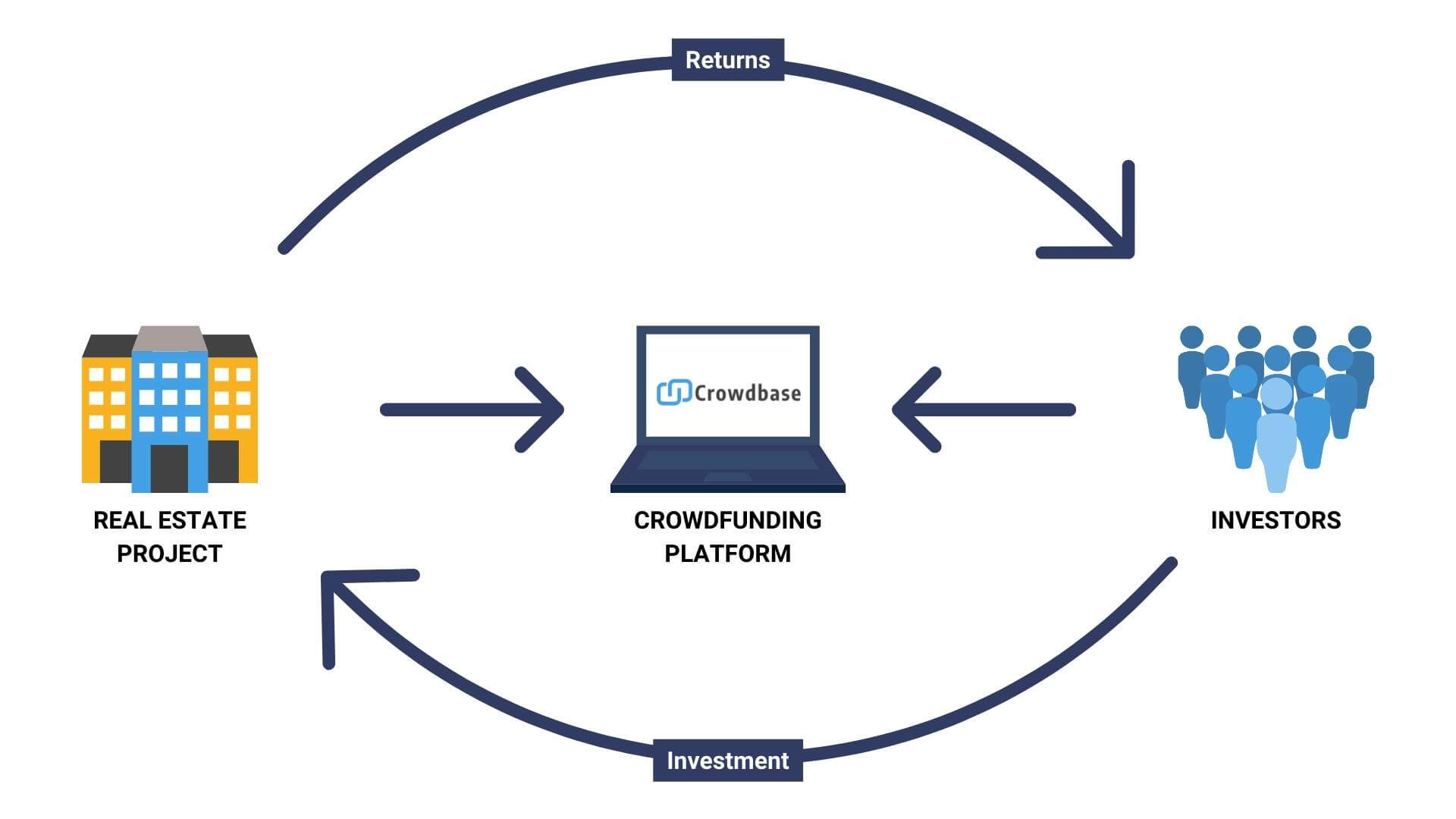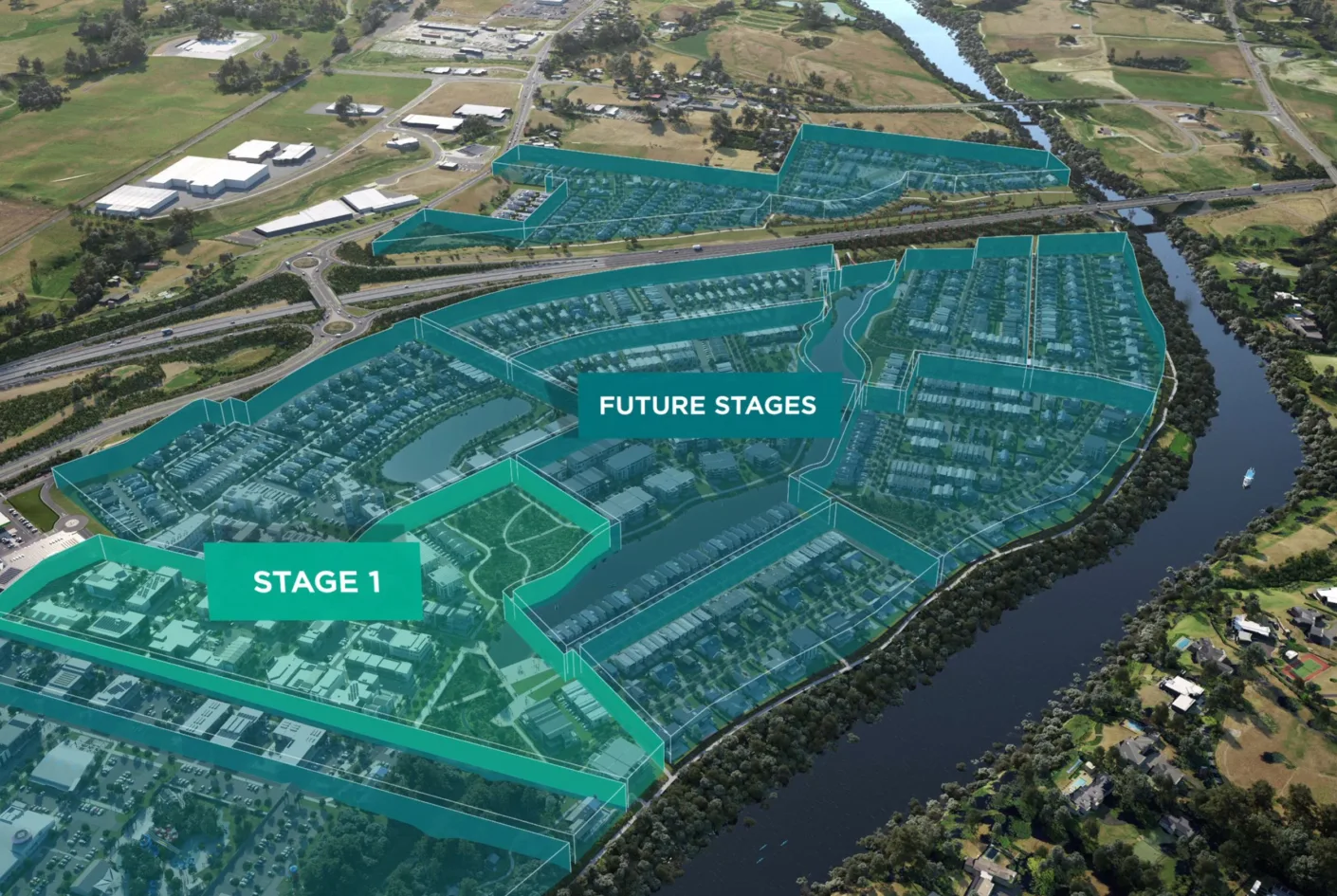Tech Trends Transforming Real Estate Sector Across The World
The real estate industry is undergoing a significant transformation driven by technological advancements. From virtual reality to artificial intelligence, these innovations are reshaping the way properties are bought, sold, and managed. In this article, we will explore the key tech trends transforming real estate sector across the world.
Author:Alberto ThompsonReviewer:Camilo WoodJan 30, 20249.1K Shares414.7K Views

The real estate industry is undergoing a significant transformation driven by technological advancements. From virtual reality to artificial intelligence, these innovations are reshaping the way properties are bought, sold, and managed. In this article, we will explore the key tech trends transforming real estate sector across the world.
Understanding The Essence Of PropTech
PropTech is not merely about the digitalization of real estate; it goes beyond the surface, addressing fundamental questions about how individuals experience and extract value from real estate. Alex Edds, the director of innovation at JLL UK, aptly notes that PropTech delves into the very core of the real estate experience, showcasing its potential to revolutionize the industry in multifaceted ways.
Value Addition Through Technology
Real estate tech companies are embracing PropTech to add significant value to their businesses. By harnessing the power of various technologies, they aim to streamline processes, enhance user experiences, and create innovative solutions for the evolving needs of the market. Whether it's improving efficiency in property transactions, optimizing property management, or offering novel ways to visualize and experience spaces, PropTech is at the forefront of driving positive change.
The Depth Of PropTech's Impact
The Emerging Trends in Real Estate Europe 2021 report sheds light on the growing significance of PropTech. A staggering 78% of respondents predict that the use of technologies within real estate companies will trend upward over the next three to five years. This statistic underscores the industry's acknowledgment of PropTech as a driving force that will shape the future of real estate operations.
Blockchain In Real Estate Transactions
In recent years, blockchain technology has emerged as a game-changer in the real estate sector, introducing a new era of security, transparency, and efficiency. The decentralized and distributed nature of blockchain provides a robust framework for conducting real estate transactions, mitigating several challenges that have historically plagued the industry.
Enhancing Security And Transparency
One of the primary advantages of implementing blockchain in real estate is the heightened level of security and transparency it offers. Traditional real estate transactions often involve a multitude of intermediaries, leading to a higher risk of fraud and errors. Blockchain, however, operates on a decentralized ledger that is immutable and tamper-resistant. Every transaction is securely recorded in a block, forming a chain that is transparent, traceable, and virtually incorruptible.
Smart Contracts Revolutionizing Processes
At the heart of blockchain's impact on real estate transactions are smart contracts. These self-executing contracts operate on predefined rules encoded within the blockchain, automating various aspects of the buying and selling process. Property verification, payment processing, and legal documentation are seamlessly integrated into smart contracts, reducing the need for intermediaries and minimizing the chances of human error.
Streamlining Property Verification
Property verification, a crucial step in real estate transactions, has traditionally been a time-consuming and labor-intensive process. Blockchain simplifies this by providing a decentralized repository of property information. Property details, ownership history, and legal encumbrances can be securely stored on the blockchain, allowing for quick and accurate verification. This not only expedites transactions but also instills confidence in buyers and sellers regarding the authenticity of property data.
Accelerating Transaction Speed
The conventional real estate transaction process is often characterized by a labyrinth of paperwork, manual verifications, and bureaucratic hurdles, leading to extended timelines. Blockchain dramatically accelerates the speed of transactions by automating many of these processes. With smart contracts executing predefined actions automatically, the time required for tasks such as fund transfers and document approvals is significantly reduced, enabling quicker and more efficient real estate deals.
Reducing Fraud Risks
Fraudulent activities, such as property title fraud and document forgery, have been persistent challenges in the real estate industry. Blockchain's immutability and cryptographic security measures provide a robust defense against such fraudulent practices. Once information is recorded on the blockchain, it becomes nearly impossible to alter retroactively, ensuring the integrity of property records and minimizing the risk of fraudulent transactions.
PropTech - Revolutionizing The Real Estate Market
In the dynamic landscape of the real estate industry, the integration of technology has given rise to a powerful force known as PropTech, short for Property Technology. PropTech leverages information technology to redefine how people research, sell, buy, or manage property. It represents a transformative wave that is reshaping traditional practices, offering innovative solutions and adding substantial value to the real estate sector.
Artificial Intelligence And Machine Learning - Transforming Real Estate Dynamics
In the ever-evolving landscape of technology, Artificial Intelligence (AI) and Machine Learning (ML) have become indispensable components across various industrial sectors. Unsurprisingly, the real estate industry stands at the crossroads of this technological intersection, leveraging AI and ML to revolutionize its software solutions and operational processes.
Widespread Integration Across Industries
A closer look reveals that virtually every industrial sector has embraced AI and ML within their software solutions. The versatility of these technologies transcends boundaries, making them a universal choice for organizations looking to enhance efficiency, reduce manual efforts, and unlock new possibilities. In this technological era, AI and ML are not just buzzwords; they are transformative forces reshaping the way industries operate.
AI In Real Estate - A Tech Trend At Its Best
In the realm of real estate, AI is proving to be one of the most influential tech trends. The integration of artificial intelligence has not only streamlined existing processes but has also opened up new avenues for innovation within the industry. According to a PWC report, organizations are increasingly relying on AI to address various operational challenges, with remarkable success rates. Activities such as timesheets (78%), paperwork (82%), and scheduling (79%) are being efficiently managed through AI applications, highlighting its effectiveness in eliminating concurrent tasks.
Breaking Free From Overwhelming Processes
Gone are the days when searching, viewing, selling, and buying properties were overwhelming tasks. The advent of AI and ML in real estate has ushered in a new era, resolving long-standing issues and transforming the real estate experience. The cumbersome nature of manual processes has been replaced by smart, data-driven solutions that not only simplify tasks but also enhance the overall efficiency of real estate operations.
Commercial Real Estate Technology Trends
The integration of AI and ML in the real estate sector has given rise to exciting commercial real estate technology trends. These trends are not just incremental improvements; they signify a paradigm shift in how the industry functions. From predictive analytics for property valuation to personalized property recommendations for buyers, AI and ML are powering innovations that are reshaping the very fabric of the real estate market.
Real Estate Crowdfunding Platforms - Revolutionizing Investment Dynamics
Real estate crowdfunding platforms have emerged as a transformative force in the investment landscape, offering individuals the opportunity to participate in property ownership through fractional contributions. This innovative approach to investment marks an evolution from traditional equity structures, providing a platform where a diverse group of investors can collectively fund real estate ventures.
The Essence Of Real Estate Crowdfunding
In essence, real estate crowdfunding platforms serve as a democratized avenue for raising capital. Instead of relying on a few high-net-worth individuals, these platforms enable a large number of people to contribute smaller amounts, collectively forming a significant capital pool. This evolution in equity investment not only broadens the investor base but also creates a symbiotic relationship between investors and customers.
The Power Of Collective Investment
The significance of real estate crowdfunding lies in its ability to source capital from a multitude of investors. This democratization of investment transforms individuals from mere consumers into active participants and investors in real estate ventures. Unlike traditional fundraising methods, crowdfunding platforms provide an inclusive space where anyone, regardless of financial status, can contribute to and benefit from real estate projects.
Fractional Ownership - Unlocking Affordability And Access
A key aspect of real estate crowdfunding is fractional ownership. This model involves dividing a real estate asset into fractions, with each fraction representing a share in the property. Fractional ownership grants proportional rights and duties to each shareholder, democratizing access to high-value assets. Particularly popular in vacation destinations and luxury property markets, fractional ownership offers an affordable entry point for individuals seeking a stake in prime real estate.
Popularizing Fractional Ownership In High-End Markets
Fractional ownership has gained traction in exclusive markets, providing a viable solution for those interested in prime properties without shouldering the entire financial burden. It is an attractive proposition for investors who wish to enjoy the benefits of real estate ownership, such as potential appreciation and rental income, without shouldering the full cost and responsibilities associated with sole ownership.
Benefits For Real Estate Investors
For real estate investors, especially those with an eye on premium properties, real estate crowdfunding and fractional ownership present a unique set of advantages. This model offers a diversified investment portfolio, increased liquidity, and the ability to participate in lucrative real estate projects that may have been financially out of reach under traditional investment structures.
Digital Twins - Transforming Real Estate Exploration And Construction Safety
In the ever-evolving digital landscape, the concept of digital twins is reshaping the way we study and interact with properties. Digital twins, essentially virtual replicas of physical buildings or structures, have the potential to revolutionize the real estate industry by providing in-depth insights and predictive capabilities.
Enhancing Property Exploration
As a wealth of information becomes readily available online, prospective buyers are now presented with unprecedented opportunities to study and explore properties virtually. Imagine the convenience of viewing a highly detailed 3D digital modelof a building when searching for housing. This immersive experience goes beyond static images, allowing potential buyers to virtually navigate and inspect every corner of a property.
Predictive Analytics For Environmental Conditions
Digital twins go beyond visual representation; they can provide predictive analytics for critical environmental conditions. Prospective buyers can assess how a specific property might withstand natural disasters such as earthquakes, tornadoes, or landslides. This predictive capability empowers individuals to make more informed decisions about the safety and resilience of a potential home, contributing to overall risk mitigation.
Maintenance Insight For Property Owners
For property owners and maintenance companies, digital twins offer a comprehensive understanding of building conditions. From existing damages to potential issues, the digital twin keeps track of the structural health of the property. This real-time information enables maintenance teams to plan repairs efficiently, knowing the exact date and location where repairs are required. Additionally, having a fire escape plan integrated into the digital twin enhances overall safety measures.
Construction Safety And Project Understanding
Digital twins play a crucial role in the construction phase of real estate projects. Developers can use digital twin applications to gain insights into the safety aspects of their projects. This includes understanding how different components interact, identifying potential weak points, and ensuring that the construction plans align with safety standards. By simulating various scenarios, developers can proactively address potential issues, preventing structural failures and optimizing the allocation of resources.
Rational Resource Allocation
The use of digital twins during construction contributes to rational resource allocation. Developers can make informed decisions about material usage, construction methods, and safety protocols, ensuring that resources are utilized efficiently. This not only enhances the sustainability of construction projects but also prevents unnecessary waste, promoting a more responsible and eco-friendly approach to real estate development.
Tech Trends Transforming Real Estate - FAQs
What Are The Digital Trends In Real Estate?
- Blockchain Technology:Blockchain is transforming real estate transactions by providing a secure and transparent platform. It enhances security, reduces fraud, and expedites property transactions.
- Artificial Intelligence (AI) and Machine Learning (ML):AI and ML are revolutionizing various aspects of real estate. From predictive analytics for property valuation to personalized property recommendations, these technologies enhance efficiency and decision-making.
- Augmented and Virtual Reality (AR/VR):AR and VR are changing how properties are viewed and marketed. Virtual property tours and augmented property information provide immersive experiences for potential buyers.
- Internet of Things (IoT):IoT devices, such as smart home systems, are enhancing the functionality of properties. From smart thermostats to security systems, IoT contributes to energy efficiency and security in real estate.
- Big Data Analytics:Big data analytics is used for market analysis, helping real estate professionals make more informed decisions by analyzing vast amounts of data, including market trends and demographic information.
What Is Transformation In Real Estate?
Transformation in real estate refers to the comprehensive and fundamental changes occurring in the industry due to technological advancements, changing market dynamics, and evolving consumer preferences. This transformation involves:
- Digitalization of Processes:The shift from traditional, manual processes to digital platforms for tasks like property transactions, documentation, and market analysis.
- Data-Driven Decision-Making:Embracing big data analytics and AI for informed decision-making based on real-time market trends, customer behavior, and property valuation.
- Smart Technologies:Integration of smart technologies, such as IoT devices, into properties for enhanced functionality, energy efficiency, and security.
- Democratization of Investment:Through real estate crowdfunding platforms and fractional ownership, more people can participate in real estate investments, democratizing access to high-value assets.
- Enhanced Customer Experience:Utilizing technologies like AR/VR for virtual property tours and personalized property recommendations to enhance the overall customer experience.
How Is AI Being Used In Real Estate?
AI is being used in real estate in various ways to improve efficiency and decision-making processes:
- Property Valuation:AI algorithms analyze multiple factors, including market trends, property features, and location, to provide more accurate and data-driven property valuations.
- Smart Contracts:Blockchain-powered smart contracts automate tasks like property verification, payment processing, and legal documentation, reducing the risk of fraud and accelerating transaction speed.
- Customer Service:Chatbots powered by AI provide instant responses to customer inquiries, assist with property searches, and schedule property viewings, enhancing overall customer service.
- Predictive Analytics:AI is used for predictive analytics, helping in forecasting market trends, identifying investment opportunities, and making data-driven decisions in real estate.
- Operational Efficiency:AI is employed to streamline various operational tasks, such as timesheets, paperwork, and scheduling, leading to increased efficiency within real estate organizations.
Conclusion
As technology continues to advance, the real estate industry is set to undergo further transformations. Blockchain, AI, AR/VR, big data analytics, IoT, drones, and chatbots are just a glimpse of the tech trends shaping the future of real estate. Embracing these innovations will not only streamline processes but also elevate the overall experience for buyers, sellers, and industry professionals alike. The integration of technology is not just a trend; it's a fundamental shift that is reshaping the foundations of the real estate landscape.
Jump to
Understanding The Essence Of PropTech
Blockchain In Real Estate Transactions
Artificial Intelligence And Machine Learning - Transforming Real Estate Dynamics
Real Estate Crowdfunding Platforms - Revolutionizing Investment Dynamics
Digital Twins - Transforming Real Estate Exploration And Construction Safety
Tech Trends Transforming Real Estate - FAQs
Conclusion

Alberto Thompson
Author
Alberto Thompson is an acclaimed journalist, sports enthusiast, and economics aficionado renowned for his expertise and trustworthiness. Holding a Bachelor's degree in Journalism and Economics from Columbia University, Alberto brings over 15 years of media experience to his work, delivering insights that are both deep and accurate.
Outside of his professional pursuits, Alberto enjoys exploring the outdoors, indulging in sports, and immersing himself in literature. His dedication to providing informed perspectives and fostering meaningful discourse underscores his passion for journalism, sports, and economics. Alberto Thompson continues to make a significant impact in these fields, leaving an indelible mark through his commitment and expertise.

Camilo Wood
Reviewer
Camilo Wood has over two decades of experience as a writer and journalist, specializing in finance and economics. With a degree in Economics and a background in financial research and analysis, Camilo brings a wealth of knowledge and expertise to his writing.
Throughout his career, Camilo has contributed to numerous publications, covering a wide range of topics such as global economic trends, investment strategies, and market analysis. His articles are recognized for their insightful analysis and clear explanations, making complex financial concepts accessible to readers.
Camilo's experience includes working in roles related to financial reporting, analysis, and commentary, allowing him to provide readers with accurate and trustworthy information. His dedication to journalistic integrity and commitment to delivering high-quality content make him a trusted voice in the fields of finance and journalism.
Latest Articles
Popular Articles



